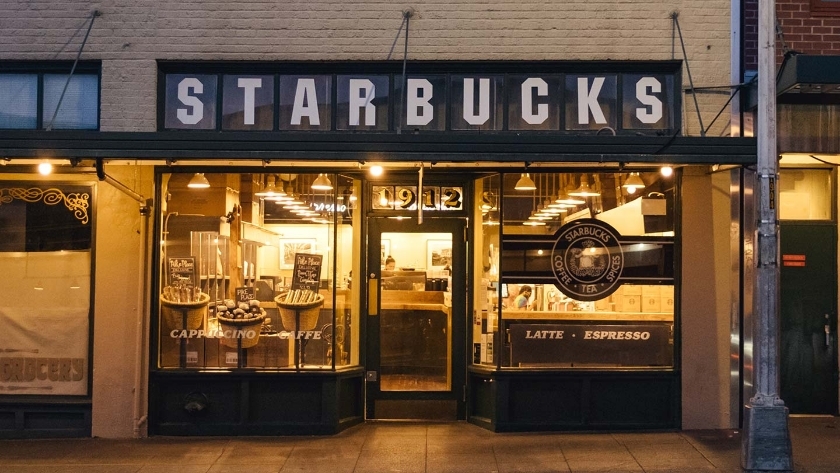Last Updated on February 15, 2025 by Bertrand Clarke
In a significant legal move, the state of Missouri has initiated a lawsuit against Starbucks, claiming that the coffee giant’s diversity and inclusion initiatives infringe upon anti-discrimination laws. The lawsuit, lodged by Missouri Attorney General Andrew Bailey, seeks to challenge the company’s efforts to enhance representation of women and people of color within its workforce. This case underscores the intensifying scrutiny and opposition faced by corporate diversity programs across the United States.
The legal challenge has been characterized by experts as a pivotal moment in the ongoing national discourse surrounding diversity, equity, and inclusion (DEI) within corporate America. Attorney General Bailey’s lawsuit alleges that Starbucks’ initiatives not only violate established legal norms but also result in slower service at its coffee establishments, suggesting that the focus on DEI compromises operational efficiency.
The controversy surrounding this lawsuit raises crucial questions regarding the legality and ethicality of diversity programs implemented by major corporations. These programs, designed to create equitable opportunities for historically marginalized groups, are now facing mounting resistance from several quarters, particularly in states governed by Republican leadership. Legal analysts assert that this case may set a precedent for similar actions against other companies that pursue DEI strategies.
“This lawsuit represents a significant escalation in the fight against corporate DEI policies,” stated Jason Schwartz, an attorney specializing in corporate law. He emphasized that the Missouri case is one of the first comprehensive challenges aimed at dismantling the broad spectrum of diversity initiatives that many organizations have adopted in recent years.
Starbucks, in response to the allegations, has firmly rejected the claims, asserting that its diversity policies are rooted in the principle of ensuring the best candidate for every role, regardless of background. The company has stated that its programs are designed to foster a workplace that reflects the communities it serves and are essential for promoting innovation and competitive advantage.
The timing of Missouri’s lawsuit coincides with broader political efforts to dismantle DEI initiatives at both the federal and state levels. Under the previous Trump administration, various actions were taken to curtail diversity efforts within government agencies, including an executive order that threatened investigations into what was deemed “illegal DEI.” The recent memorandum issued by Attorney General Pam Bondi indicates a renewed commitment by the Department of Justice to enforce such measures, potentially galvanizing more states to pursue similar legal avenues.
This legal landscape places companies in a precarious position, as they navigate the complexities of implementing DEI programs while being wary of potential legal repercussions. Many corporations are reassessing their diversity strategies amidst fears of legal challenges that could arise from conservative interpretations of these initiatives. According to corporate attorneys, businesses are now left uncertain about which aspects of their DEI efforts might be classified as “illegal,” prompting urgent reviews of their policies.
Aaron Goldstein, an attorney at Dorsey & Whitney, remarked that the Missouri v. Starbucks case epitomizes the heightened risks faced by companies in the current environment. “The actions taken by Missouri and other states illustrate the climate of apprehension that companies must now operate within, particularly when it comes to their commitment to diversity and inclusion,” he explained.
The Missouri lawsuit alleges that Starbucks’ programs, including mentorship initiatives connecting minority employees with senior leadership and specific diversity hiring targets—such as achieving 30% minority representation at all corporate levels and 40% in retail and manufacturing jobs by 2025—constitute unlawful discrimination under the guise of diversity efforts. The lawsuit contends that these initiatives serve as a cover for discriminatory practices rather than a genuine commitment to equitable hiring.
The implications of this lawsuit extend beyond Starbucks; they represent a broader societal debate about the future of corporate diversity initiatives in the United States. As more states pursue legal challenges against DEI programs, corporations may need to recalibrate their approach to diversity in order to mitigate legal risks while still striving to promote an inclusive workplace environment.
This ongoing legal battle will undoubtedly attract attention from various stakeholders, including civil rights organizations, corporate governance experts, and the general public. The outcome could set a significant precedent for the operation of DEI initiatives across multiple industries and influence how companies balance the need for diversity with the evolving legal landscape.
As this case unfolds, it is imperative for both corporations and policymakers to engage in meaningful dialogue about the role of diversity in fostering inclusive work environments, the benefits of diverse perspectives in driving business success, and the potential consequences of legal actions aimed at curtailing such initiatives. The Missouri lawsuit serves as a critical touchpoint in understanding the challenges and opportunities that lie ahead for diversity in the corporate sector.










